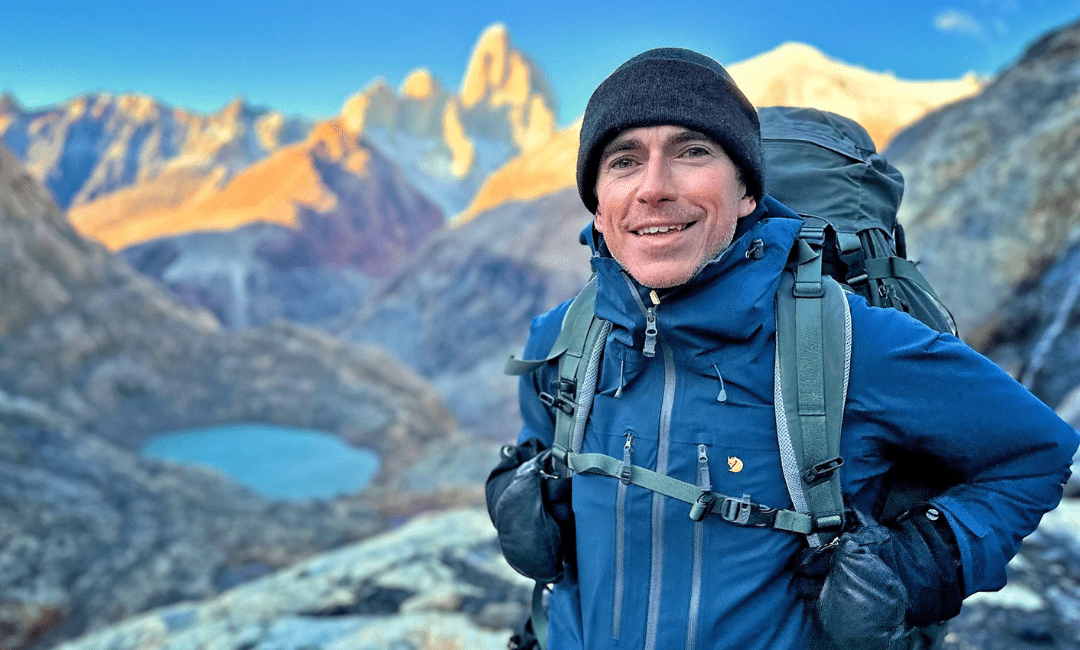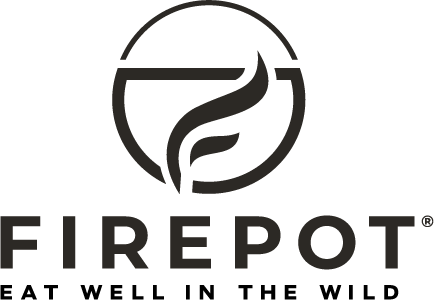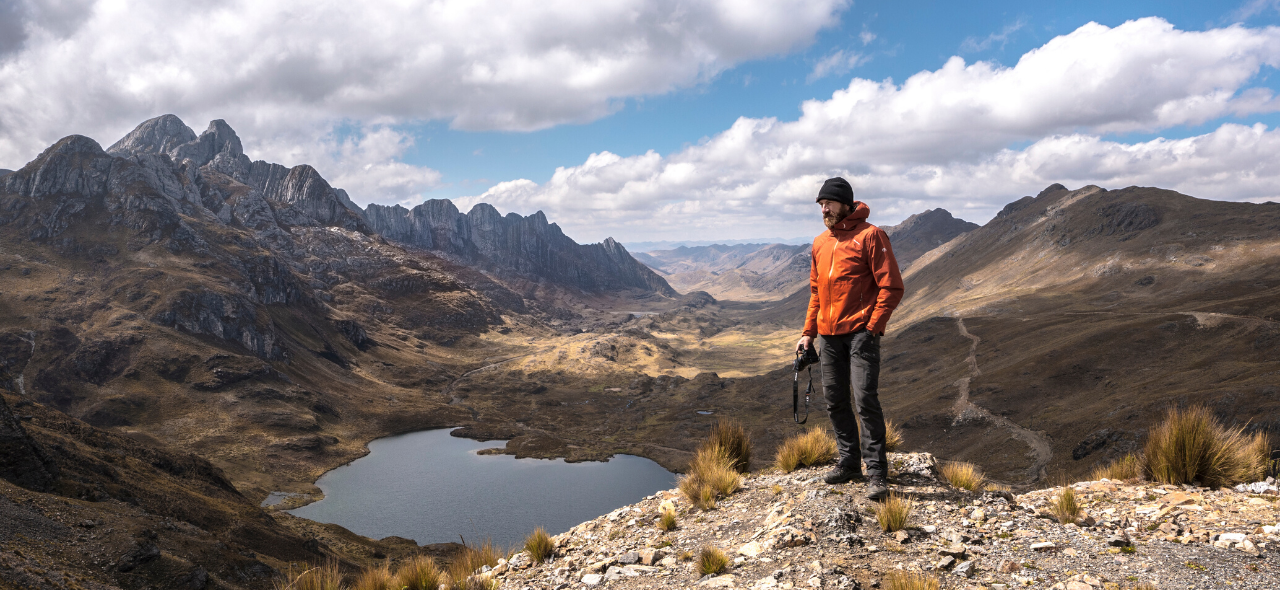
Wilderness with Simon Reeve
Image credits: BBC/The Garden/Piers Leigh
British broadcaster Simon Reeve is back from his latest expeditions to the Congo, Patagonia, the western Pacific, and Africa's Kalahari desert in search of our planet's last remaining wildernesses.
‘Wilderness’ is a term bandied around a lot in our industry. But in a new, captivating series released by the BBC, Simon explores some of the few remaining remote areas of the world where nature has not been dominated by man.
The following is extracted from an interview by the BBC following Simon’s return:
This series is all about wildernesses but can you explain what a wilderness is?
I think everyone's got their own image and definition, or idea of what it is. I would define a wilderness as a place where the impact of humanity is low, and where nature still makes the rules. There are plastic particles at the bottom of the ocean and the top of Everest, but we were looking for areas where nature was still largely in charge.
Why did you choose to explore the great wildernesses for this series?
For the first time in human history more than half of all people live in urban areas – and in countries like the UK that goes up to more than 80%. We need to remember there’s not just a little patch of Wilderness out there in our big world, there are still huge wild areas of the planet full of mystery and beauty. We all need a bit of a reminder that it’s still out there, that it’s glorious and vital, and that it’s worth caring about and protecting.
This series feels quite different to your previous ones. Was that part of the plan?
This series is much more global, it's about the whole planet. I'm trying to remind people that we all have a connection to these areas, to Nature – you could call it spiritual. But these are not just nice places to explore and protect. We exist on this planet because these places help to maintain a balance in our ecosystem. You can't have a rainforest the size of the Congo, the second largest tropical forest on the planet, and it not be a fundamental part of our global ecosystem.
If you start to take that away, change will occur. If we want the planet to stay healthy, we need to give a damn about these wild areas, to understand them, learn about them, and then offer nature more focus and protection. By showing and exploring these incredible wilderness areas, I’m hoping to remind and reassure people there’s still time to save them.


You’ve said these have been your toughest journeys yet. How did you prepare?
Physically, these journeys were really hard and really challenging. I knew they’d be physically tough, so I was running around the wilds of Devon where I live for months beforehand wearing a 15 kilogram weight vest getting into shape. I looked like a lunatic but it had to be done. I was going on a series of very challenging journeys, not just into tricky hot places, but up, in the case of Patagonia, where we had to climb up a couple of thousand meters to the ice field in the middle of the Andes Mountains, carrying heavy packs with our tents, ropes and of course food. But I really wanted the journeys to be rigorous and tough because that's the only way that we could get to places that are special and genuinely wild.
It involved months of preparation and logistically it involved months of me trotting, jogging and then running around wearing this ludicrous weighted vest to prepare.
We had to make sure all our kit was spot on and we had to find decent expedition food we could boil-up to eat on the journeys, because a TV crew marches on its stomach just like the military.
What surprised you the most along the way?
I think the people were the surprise. The people we encountered in ludicrously remote parts of the planet were such very strong, fascinating, welcoming characters. They weren't opposed to our presence, they were so pleased to engage with us. You can see in the first episode, for example, one of the Baka people who agreed to carry our camera while he climbed up a tree to harvest wild honey from angry bees and he's telling the other guys to hang on, so he can get a shot of it for the viewers. Their engagement with what we were doing was a big surprise and it showed how magnificent they are. Their incredible lives, their experience, in the wild, in the wilderness, I think, makes them bigger human beings than the rest of us. When we look at people on the planet, our focus is resolutely towards great cities as the places we identify as being the pinnacle of our existence. But actually, these people in the wild are the most sophisticated human beings of all, living in difficult situations but incredibly rich environments.
I met a number of people in these remote places who had grown up on the edge of towns or in cities, and they turned their backs on those lives, because they were seeking a more powerful natural existence. Often they were young guys who had gone into the wild to find themselves and to feel more connected to their planet. I found that fascinating.
I really believe we all need the wild in our lives, we need a more profound connection with Mother Nature
...and I speak from my own experiences growing up in a grey bit of West London, and finally encountering the wild and feeling the powerful life change it can provide. I saw that same transformation among people we encountered on these journeys.
Is that what motivates you to focus on human stories in relation to nature and destinations?
That chance to interact with people is what I love most about the journeys. It's always the interactions with people that I remember most and I think it’s what I’ll really remember forever when I'm eventually told I've got to hang up my passport. I think we're all fascinated by the lives of other people, and I've been very privileged to meet people on all my journeys with fascinating stories to share.
What have you gained from each series you’ve filmed?
I think every journey has changed me in some ways and helped me to grow as a person. I flunked out of school without any real qualifications, and these journeys have been part of my college and university. I've stepped out onto the planet with my eyes wide open, with a real willingness to learn. So every journey changes me. Every encounter on these expeditions taught me something and helped show me a totally different side of our world. These journeys reminded me how much glory and beauty there is out there, and the fundamental part humans play in the landscape and ecosystem of the world.
Did you really eat testicles on your travels?
If you're going on a TV journey, you have to do mad things like that. I stayed with Gaucho cowboys on the edge of the South Patagonian icefield in the Andes Mountains, and they eat a diet of a pure carnivore. Testicles are on the menu a lot and they are quite tasty, to be honest. They call them prairie oysters in North America, and they’re a bit like eating a soft-boiled egg.
What's next? Where would you like to travel to on your next adventure?
I've been on a lot of journeys, but it is an enormous planet out there. It's constantly changing, growing, shaping, developing, and being degraded. With eight billion of us, that’s an infinite stock of stories to capture. I'd love to go to Japan, I would love to travel in West Africa. There are countless more journeys I would love to do. I would love to travel more in Brazil, in Indonesia, in the Philippines. It's an amazing, wonderful world out there and despite making programmes for nearly two decades and having visited more than 100 countries, on six different continents, I feel like I’ve just scratched the surface.
Simon undertook the expeditions for this series with 50 custom-made Firepot meals for his journey.
Watch the series on BBC iPlayer.




